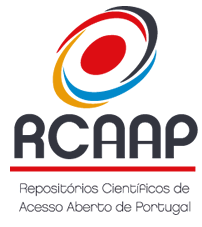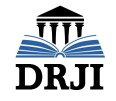Methodology of problematization - A feasible melhodological alternative to the Subject of nursing foundations?
Keywords:
Nursing teaching, Nursing Foundations, Methodology of Problematization, Nursing curricular proposalAbstract
This study aimed to check with lhe teaching staff, lhe feasibility of applying the Methodology of Problematization to the Nursing Foundations subject at UEL. The needs of such implementation appeared because the subjects of the Nursing Program should be added to the new curricular proposal - which shows in its basic principIes described in the pedagogical project, the use of a methodology that can lead to shaping capable professionals,concerned with the historical and social-political context in the area of Public Health. Another turning point for the changes in this subject lies in its main concern of teaching nursing procedures highlighting the Technical aspects.Through lhe concepts and directives of the Methodology of Problematization, the states of Reality Observation – with the “Problem" identification - are developed: the need of an innovative methodology; the definition of Key-Points; the new curricular proposal, The Methodology of Problematization and the search for information with members of the teaching staff who would have experienced the methodology. After the analysis of the steps mentioned above, we have decided to create a working experiment with the teachers of the subject as a Solution Hypothesis having lhe Theorizing as a starting point. With lhe conclusions presented by members of the teaching staff and included in the stage of Applying to Reality, the credibility in using the Methodology of Problematization as a feasible and effective means in the teaching-learning process of the discipline was reinforced.Downloads
References
BORDENAVE, Juan Diaz. Alguns fatores pedagógicos. Secretaria Geral Secretaria de Modernização Administrativa e Recursos Humanos. Brasília, 1989. p.19-26. (Curso capacitação pedagógica para instrutores/supervisores da área da saúde).
BORDENAVE, Juan Dias; PEREIRA, Adair. Estratégias de ensino aprendizagem. 6.ed. Petrópolis: Vozes, 1982.
DAVINI, Maria Cristina. Currículo integrado. Secretaria Geral. Secretaria de Modernização Administrativa. Recursos Humanos. Brasília, 1989.
p.39-55. (Curso capacitação pedagógica para instrutores/ superiores da área da saúde).
JASON, Hilliard. Inovação na educação médica: uma opinião pessoal. Newsletter, Wayne, v.20, dez. 1993. (mimeo).
MADEIRA, Lélia Maria. Pesquisa Participante: metodologia pedagógica alternativa para enfermeiros. São Paulo: USP, 1985. Dissertação
(Mestrado em Enfermagem Pediátrica) - Escola de Enfermagem, Universidade de São Paulo.
PAVIANI, Jayme. Problemas de filosofia da educação. Petrópolis: Vozes, 1988. Cap.8; A problematização como recurso pedagógico, p.79-89.
PEREIRA, Rosane Carrion Jacinto. Tendências na educação de enfermagem: a visão de teoristas, pesquisadores e educadores. Rev. Gaúcha Enfermagem, Porto Alegre, v.l 0, n.2. p.45-49, jul. 1989.
UNIVERSIDADE ESTADUAL DE LONDRINA. Coordenadoria de Assuntos de Ensino de Graduação. Processo nº. 325.788 de 25 de agosto de 1995. Fixa currículo mínimo do curso de graduação em Enfermagem a ser implantado a partir de 1996. Londrina: UEL, 1995.
Downloads
Published
How to Cite
Issue
Section
License
Semina: Ciências Sociais e Humanas adopts the CC-BY-NC license for its publications, the copyright being held by the author, in cases of republication we recommend that authors indicate first publication in this journal.
This license allows you to copy and redistribute the material in any medium or format, remix, transform and develop the material, as long as it is not for commercial purposes. And due credit must be given to the creator.
The opinions expressed by the authors of the articles are their sole responsibility.
The magazine reserves the right to make normative, orthographic and grammatical changes to the originals in order to maintain the cultured standard of the language and the credibility of the vehicle. However, it will respect the writing style of the authors. Changes, corrections or suggestions of a conceptual nature will be sent to the authors when necessary.













